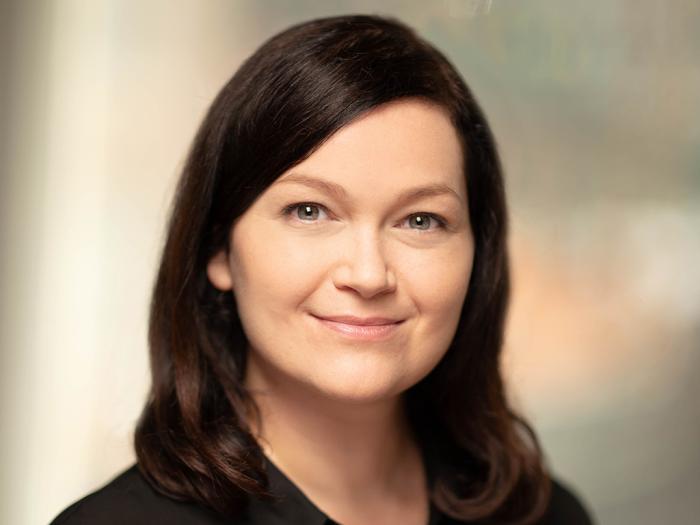Efrat Nechushtai

Efrat Nechushtai is an assistant professor at the George Washington University’s School of Media and Public Affairs. Her research focuses on journalism studies and political communication, and she is particularly interested in the impact of platformization and political polarization on journalism, both in the United States and internationally.
Dr. Nechushtai has published qualitative, quantitative, and theoretical studies on these topics in Journalism, Digital Journalism, The International Journal of Press/Politics, Mass Communication and Society, Computers in Human Behavior, Journalism Studies, and Information & Culture. Her book, Does Trust Matter? Why Journalists Need to Rethink Their Relationship to Their Audience is forthcoming from Columbia University Press. Based on extensive ethnographic research, the book explores how journalists around the world are responding to public distrust and hostility.
Her scholarship received the 2025 Mass Communication and Society Article of the Year award, the 2022 Smithsonian’s National Postal Museum Award for Scholarship in Postal History, the 2022 Top Paper Abstract Award from the Association for Education in Journalism and Mass Communication Political Communication division (Midwinter conference), and the 2021 Top Faculty Paper award from the International Communication Association Journalism Studies division.
Dr. Nechushtai received her Ph.D. in communications from Columbia University in 2020. She was previously a Knight News Innovation Fellow at the Tow Center for Digital Journalism, an Andrew Wellington Cordier Teaching Fellow at the Columbia University School of International and Public Affairs, and a visiting fellow at the Bremen International Graduate School of Social Sciences. Before entering academia, she worked as an editor and staff writer at Haaretz.
SMPA 2101, Journalism: Theory & Practice
SMPA 3194, Digital Platforms & the News
SMPA 2177, Media History
SMPA 2151, Research Methods
Efrat Nechushtai & Yossi David. 2025. “Money, Politics, or Ethics? Perceptions of the Factors Influencing Journalists’ Work.” The International Journal of Press/Politics. DOI: 10.1177/19401612251329983
Efrat Nechushtai, Rodrigo Zamith, and Seth C. Lewis. 2024. “More of the Same? Homogenization in News Recommendations When Users Search on Google, YouTube, Facebook, and Twitter.” Mass Communication and Society 27 (6): 1309-1335.
Efrat Nechushtai. 2023. “Resisting the Individualization of Risk: Strategies of Engagement and Caution in Journalists’ Responses to Online Mobs in the United States and Germany.” Digital Journalism 11 (10): 1906-1923.
Rachel E. Moran & Efrat Nechushtai. 2022. “Before Reception: Trust in the News as Infrastructure.” Journalism 24 (3): 457-474.
Efrat Nechushtai & Lior Zalmanson. 2021. “‘Stay Informed’, ‘Become an Insider’ or ‘Drive Change’: Repackaging Newspaper Subscriptions in the Digital Age.” Journalism 22 (8): 2035-2052.
Andrea Wenzel, Sam Ford, and Efrat Nechushtai. 2020. “Report for America, Report about Communities: Local News Capacity and Community Trust.” Journalism Studies 21 (3): 287-305.
Efrat Nechushtai. 2019. “Making Messages Private: The Formation of Postal Privacy and its Relevance for Digital Surveillance.” Information & Culture 54 (2): 133-158.
Efrat Nechushtai & Seth C. Lewis. 2019. “What Kind of News Gatekeepers Do We Want Machines to Be? Filter Bubbles, Fragmentation, and the Normative Dimensions of Algorithmic Recommendations.” Computers in Human Behavior 90: 298-307.
Efrat Nechushtai. 2018. “From Liberal to Polarized Liberal? Contemporary US News in Hallin and Mancini’s Typology of News Systems.” The International Journal of Press/Politics 23 (2): 183-201.
Efrat Nechushtai. 2018. “Could Digital Platforms Capture News through Infrastructure?” Journalism 19 (8): 1043-1058.
Dr. Nechushtai earned a Ph.D. in communications from Columbia University in 2020. She received an M.A. in cultural studies from the Hebrew University of Jerusalem in 2006 and B.A. in social sciences and humanities from the Open University of Israel in 2003.
The roles of journalism, digital platforms and their impact on journalism, trust in the news, comparative journalism studies, polarization and the news

